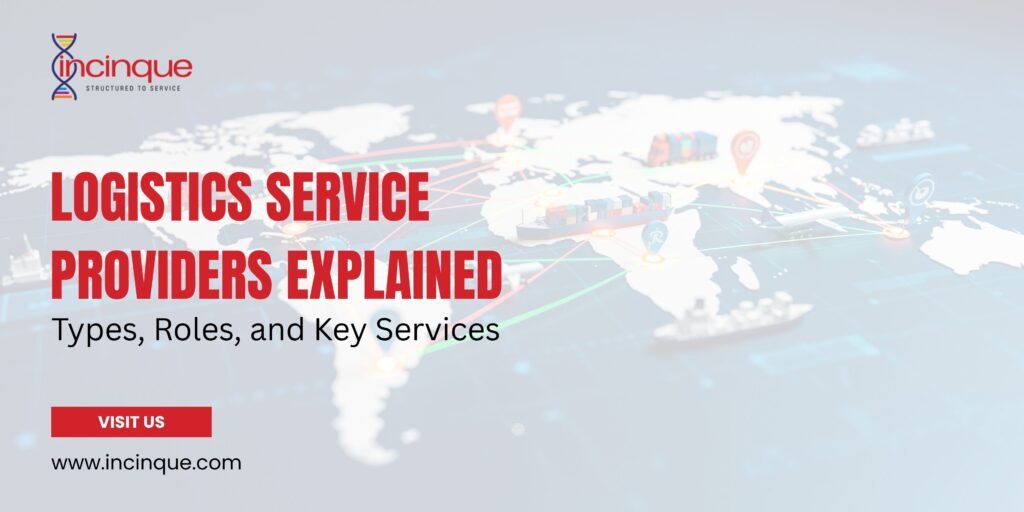Ever track an order placed digitally and wonder about its seamless transit across great expanses — from the depot right to your doorstep — without going astray? Behind every successful delivery is an intricate network of experts working diligently out of sight to guarantee its arrival. These experts are known as Logistics Service Providers (LSPs), and they act as the hidden engine powering global trade and e-commerce growth.
In this bustling commercial environment, if you operate an expanding e-commerce platform or a production enterprise, handling shipping, warehousing, and fulfillment internally might seem like trying to complete a complex puzzle missing key components. This is precisely why businesses engage freight brokerage firms in the USA and other expert logistics collaborators — to introduce structure, effectiveness, and dependability into their distribution networks.
Before deciding the best resolution for your firm, we ought to carefully review exactly what logistics service providers deliver, the different types available, and how they can shift your processes from demanding to simple.
What Is a Logistics Service Provider (LSP)?
A Logistics Service Provider is a firm that handles, organizes, and carries out diverse supply chain activities for customers. These suppliers might focus on shipping, storage, or deliver comprehensive supply chain arrangements.
Consider them the functional core of contemporary trade — tasked with moving your goods from one location to another effectively and affordably.
Types of Logistics Service Providers
Logistics service providers vary considerably. A rundown of the primary groupings follows:
1. Freight Brokerage Services
Shipping intermediaries act as liaisons linking parties requiring goods movement with carriers. Lacking proprietary vehicles, they utilize their networks and expertise to procure the most reliable and cost-effective transit arrangements. In the US, these brokering services are important for smaller and mid-sized businesses lacking direct relationships with principal transport companies. They provide flexibility, access to diverse routes, and current tracking information, all without necessitating long-term obligations.
Example:A furniture vendor located in California could utilize a freight intermediary to swiftly transport goods to New York while avoiding the need to handle carrier discussions or documentation.
2. Full-Service Logistics Providers
A full-service logistics provider handles everything — from freight forwarding and customs clearance to warehousing, inventory control, and last-mile delivery.
They are ideal for companies looking to outsource their entire supply chain to a single expert partner. Many full-service providers use advanced analytics and AI tools to optimize delivery times and reduce costs.
3. Tech-Driven Logistics Companies
As digital shifts reshape various sectors, logistics enterprises powered by technology utilize automation, Internet of Things sensors, location tracking, and cloud software to achieve efficiency supported by data.
These organizations enable customers to observe consignments live, foresee hindrances, and simplify paperwork handling — all accessible via one central interface.
Example: A technology-focused logistics service provider could notify a retailer of a weather-caused shipment delay and promptly redirect it to the next open carrier.
4. Custom B2B Logistics Partners
Each enterprise possesses distinct supply chain requirements. Bespoke B2B logistics firms develop customized shipping and storage strategies that suit particular sectors, like the medical field, vehicle manufacturing, or merchandise sales.
For example, a producer of healthcare devices may necessitate climate-controlled facilities, whereas an auto component distributor needs timed arrivals at several assembly plants.
5. E-Commerce Logistics Experts
Online retail has transformed what shoppers anticipate regarding speedy and clear shipping. Logistics firms serving e-commerce focus on managing large quantities of orders, shipment monitoring, and handling product returns.
These specialists connect straight to web stores and shopping services, guaranteeing precise stock levels and providing for prompt delivery, either within the day or the following day.
6. Warehousing & Distribution Services
Crucial to any logistics approach are effective warehousing and delivery. These companies supply storage space, item retrieval, boxing, and shipping — guaranteeing goods arrive to consumers promptly and securely.
Contemporary storage facilities leverage technology, automated machinery, and information analysis to optimize rooms and reduce mistakes by people.
7. Small Business Logistics Providers
Smaller enterprises frequently encounter constrained spending plans and scarce assets. Logistics firms specializing in small business accommodate this sector by delivering adaptable, usage-based service plans.
They enable new ventures and community-focused labels to utilize expert delivery and order processing capabilities without substantial outlays on physical facilities.
Why Partner with a Logistics Service Provider?
Outsourcing logistics brings measurable benefits:
- Cost Efficiency: Access to carrier networks and volume discounts.
- Scalability: Adjust operations based on seasonal demand.
- Expertise: Leverage industry knowledge for compliance and risk management.
- Technology: Use advanced tracking and analytics without investing in your own systems.
- Focus: Free your team to concentrate on growth and customer service.
U.S. transportation authorities indicate that firms partnering with logistics providers may achieve operational expense reductions of 15 to 25 percent and simultaneously enhance delivery precision.
Final Thoughts
Selecting the appropriate freight brokerage solutions in the USA or a comprehensive logistics associate involves more than just transporting freight — it’s about establishing a dependable, clear, and digitally enhanced supply network that aligns with your corporate objectives.
Regardless of whether you operate in e-commerce, manufacturing for other businesses, or are an expanding small enterprise, the correct logistics partner can elevate your processes from adequate to outstanding — maintaining your edge in the present, brisk market.







